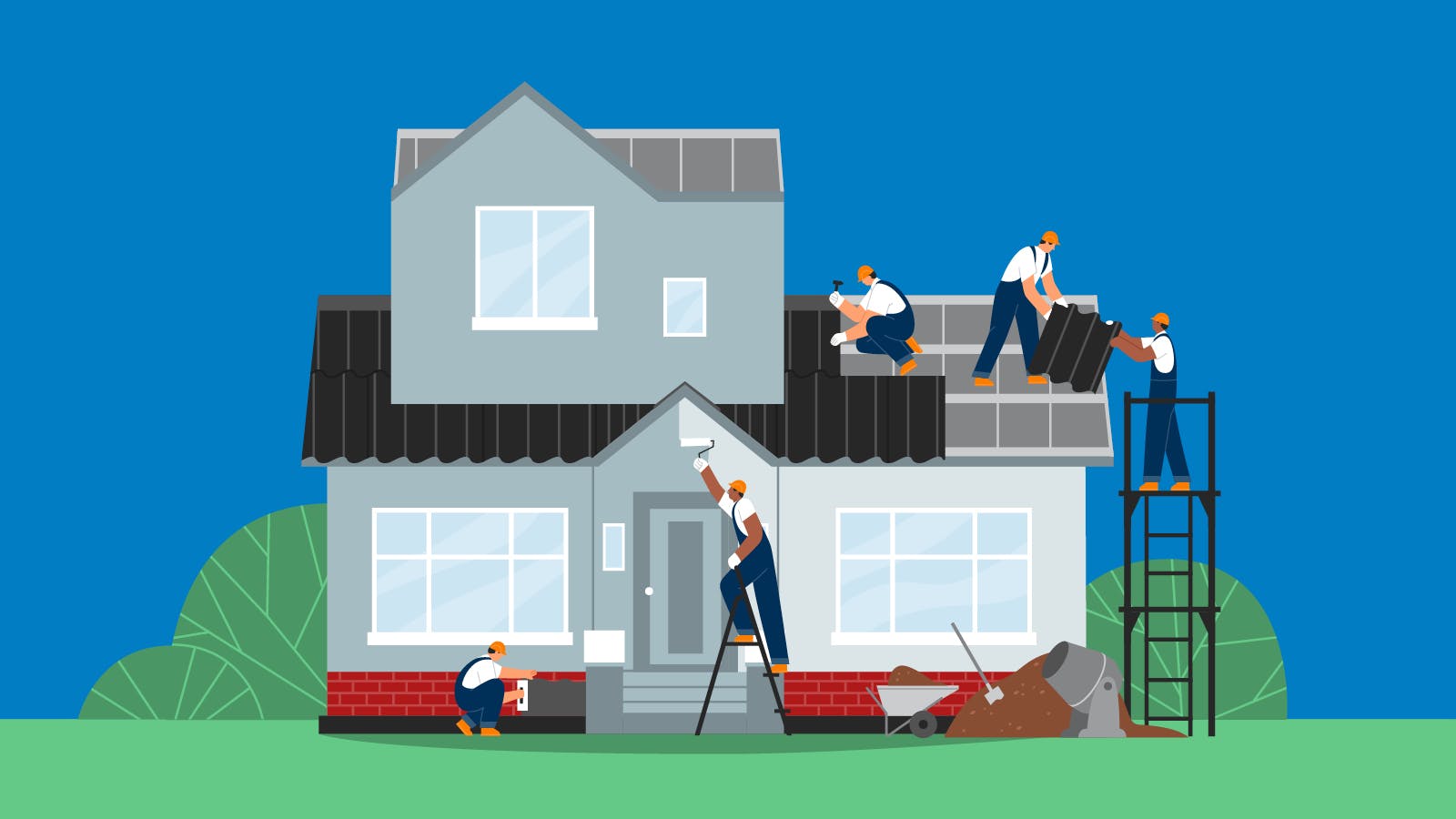

Thinking about buying a home? You’ve probably imagined it more or less the traditional way. Maybe you’ve driven through some neighborhoods you like. Visited a few open houses. Perhaps even done a little online surfing. But have you given any thought to new construction homes?
There’s no rule that says you have to buy a pre-existing home. Why not build your dream home from the ground up instead?
New construction homes: Houses that are newly built and have never been lived in before. Basically, as the name implies, a new construction is brand-spanking new!
The opposite would be pre-existing homes.
Pre-existing homes: Houses that have already been built and lived in. You might also hear them called just, “existing homes.”
Some new construction homes are fully custom. This means that the builder or homeowner chooses a unique floorplan, finishes, and more. Can you say, “upgraded backsplash?”
Or new builds can be more cookie-cutter. In this case, the builder has a handful of floorplans and finishes that they or the owner can choose from. This approach is popular in suburbs and pre-planned neighborhoods. And, while it may be a little less custom, it sure makes for more cohesive neighborhoods.
Either way, if a home was built recently and has never been lived in before, it can be considered new construction.
So, what separates new construction homes from their pre-existing counterparts? Apart from that new paint smell, of course.
If you’re interested in homeownership, either can be a great choice. But you’ll want to understand some potential key pros and cons to determine the right path forward.
The right kind of home will depend entirely on your needs and preferences. But you really can’t go wrong either way!

So, with so many unique benefits, why do most homeowners overlook the option of a new build?
New home construction has been around since the dawn of time. Think about it: At one point, every home was a new build! Over time, though, buyers started opting for pre-existing homes more and more. Some of the potential cons of new builds discussed above played a big part in this. Namely affordability, time, and convenience.
Eventually, more homeowners were buying houses than building them.
In 2021, the median age of owner-occupied homes in the United States was 39 years. New York state had the highest median age, at 60. Nevada had the lowest, at 23. Basically, no matter where you live, the average home is 20+ years old. Not a shiny new build.
It’s also important to note that there have been a few sizable dips in the new build industry. Can you guess when those might have occurred? That’s right — around 2008 and 2020. In fact, in some ways, the new construction industry is still bouncing back from the pandemic today.
The worst of the pandemic appears to now be behind us. Supply chains are slowly healing, consumers are spending again, but new construction is still reorienting.
In March 2023, the number of building permits processed was nearly 25% lower than it was in March 2022. In the same month, the number of new housing unit builds started was also 17% lower year-over-year. Key concerns from buyers included affordability, stricter lending standards, and persistent supply chain issues. Plus, the days of the 3% mortgage interest rate are long gone, unfortunately.
It’s not all bad, though! We promise.
Just a few months later, in May 2023, things turned around. The number of single-family builds started jumped nearly 19%, as compared to April’s figures. That’s the largest surge in nearly 30 years. Basically, the new construction industry is healing.
The industry may be a bit up-and-down right now. But the good news is that you can start the new build process regardless of where the trends are headed on any given day.
For example, maybe you start building in a lull. This might actually work in your favor. Consider the most sought-after contractor in town. His books might be full years in advance. But, with new construction slightly down, maybe he’ll actually have an opening.
Or maybe you start building during a boom. You can get recommendations for contractors, painters, or electricians from friends or family who might be building, too.
Either way, if it sounds like new construction is for you, you’ll definitely want to speak with an experienced real estate agent and a mortgage professional. They’ll know more about your local market, financial situation, and your best path forward.
Your search doesn’t have to be limited to pre-existing homes. In fact, maybe the perfect house for you doesn’t even exist. At least, not yet.
New construction homes may come with their own challenges, sure. But they also may inspire creativity and customization.
They might not be the right choice for everyone. But, either way, spending some time daydreaming about the backsplash you’d install in your fully custom kitchen can never hurt. Calacatta marble, anyone?